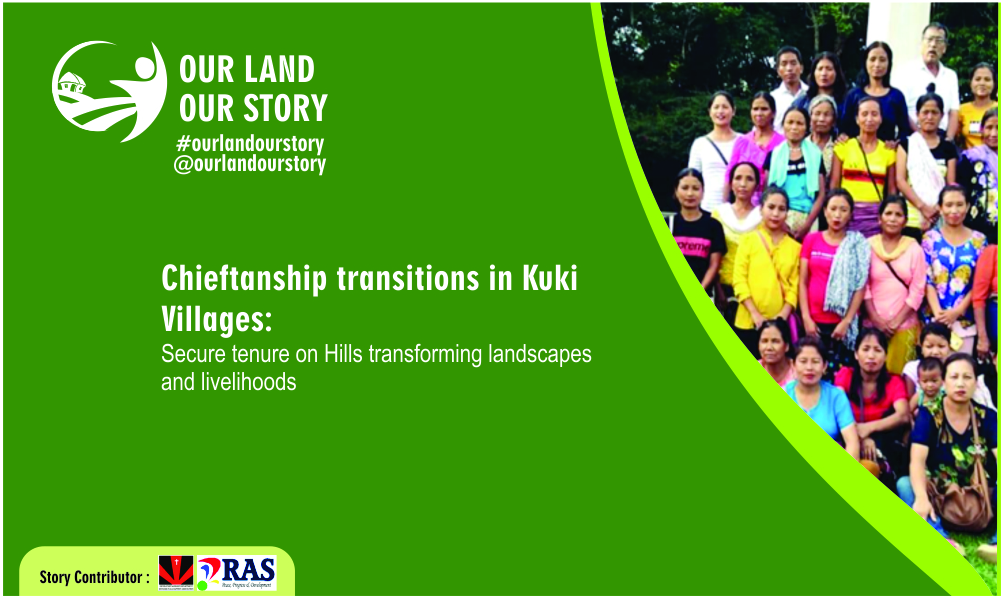
Secure tenure on Hills transforming landscapes and livelihoods...
Among the Kuki tribes of Manipur, the chieftainship system of land holding is still in practice. This system is subject to highly unequal land and power relations, where land ownership is the exclusive right and prerogative of the chief. Astonishingly, villagers have no rights over land whatsoever. Clearly, the land rights system is still one of great challenges in the Kuki Society.
Despite this, there have been slight changes and evolution in land rights within Kuki society, particularly in Jolzam Village. Jolzam village, situated northwest of Churachandpur District, is one of the targeted villages of the RAS-RNBA-Brot Project. The village is seven kilometers away from District Headquarter and has three zones. Zone-I's land is plain and contains Paddy fields. Zone-II contains foothills and community habitation and Zone-III contains hills, where there are community reserve forest areas, jhuming area, and pineapple farming areas.
In the plain area and some parts of the community habitation, an individual land ownership system could be seen. Individuals purchase habitation plot (80/50ft.sqr) from the chief and paddy field where land rights solely rested on the landowners with rights to alienate (sale) the land within the community only with the knowledge of the village Authority.
But on the hills, the chief remains the sole owners of the land. By his mercy, villagers carry out plantation or cultivation as long as they reside in the village and are in good books of the Chief. The villager has no rights of selling/mortgaging the land they cultivate in the hills.
One of great changes after the implementation of RAS-RNBA-Brot project was that, allotment of land to four widow women took place, with an area of one acre each. Through discussions and suggestions on improvement of land holding rights system in Jolzam Village, the Chief said that “whoever wants to carry out any plantation for a long term period of time, I will allot him or her a land and if required I will issue him or her any land documents for accessing any scheme”. The chief showed much concern about land rights and encouraged his landless villagers.
There has been a massive increase in pineapple farm cultivation in Jolzam village, since then. More than 70% of the villagers now practice pineapple farming ranging from one acre to two acres of land. The villagers have also adopted banana plantation, lemon plantation, edible fruitr tree as well as edible wild turmeric plantation, all of which was never practiced before. This is also influencing the neighboring villages. One of the great changes and impact to another project village , Gamnom village, is mentioned below
The Gamnom village chief has surrendered all of his power to the villagers. Now, the only thing that remains, is the process of transferring land rights to the villagers by way of registering and lump sum payment by the villagers to the chief. The Chieftainship governing system has been changed to a Democratic governing system, or say Chairmanship system of governing. Planning and adoption of rules and regulation for Chairmanship governing system and land rights has been on process in Gamnom village.
Thus, the community stakeholders are becoming more aware on democratic system of land holding rights in the present society.
Story Contributed by: Rural Aid Service (RAS), Churachandopur, Manipur, India and RNBA-Manipur
